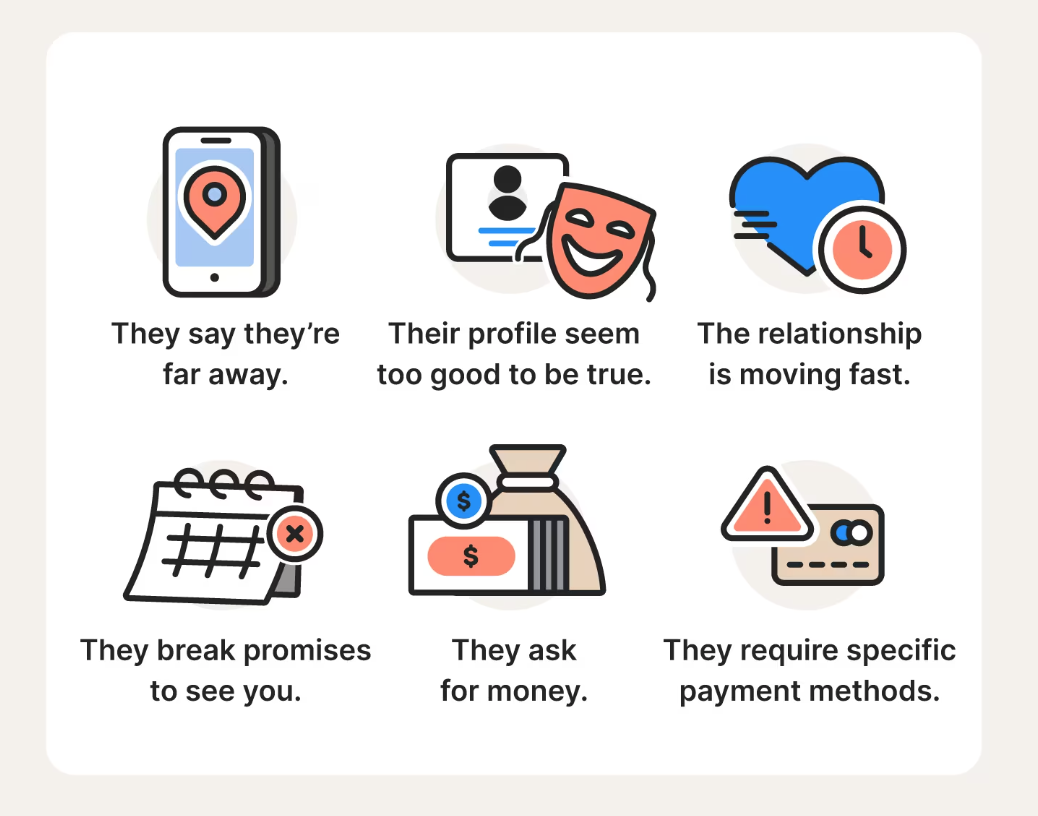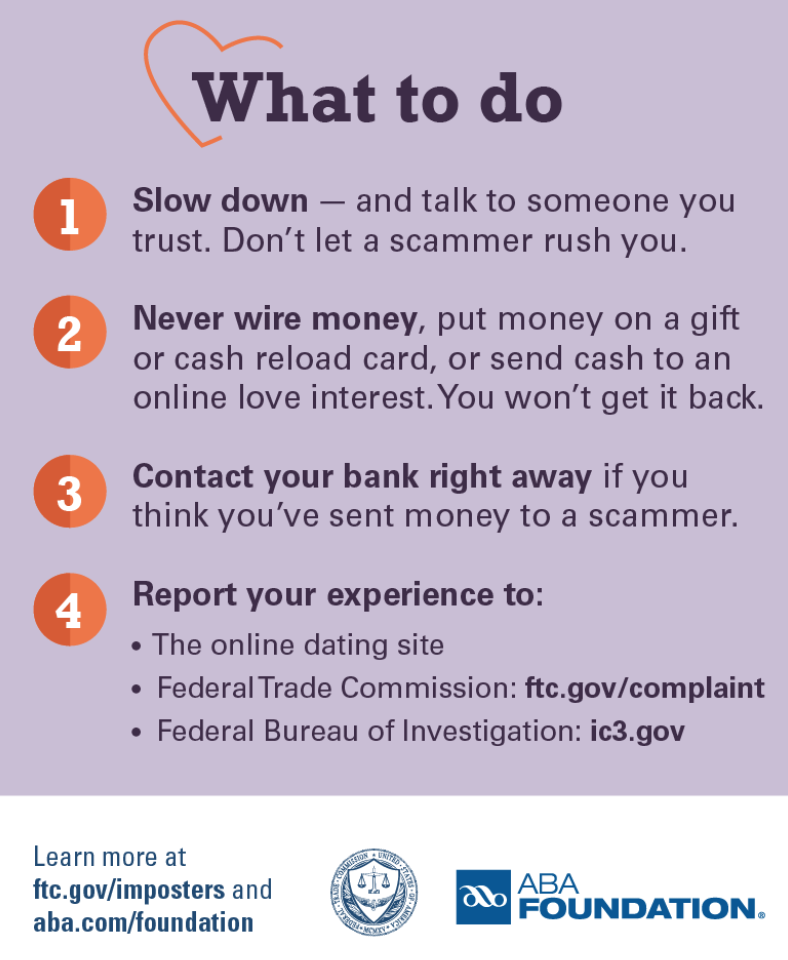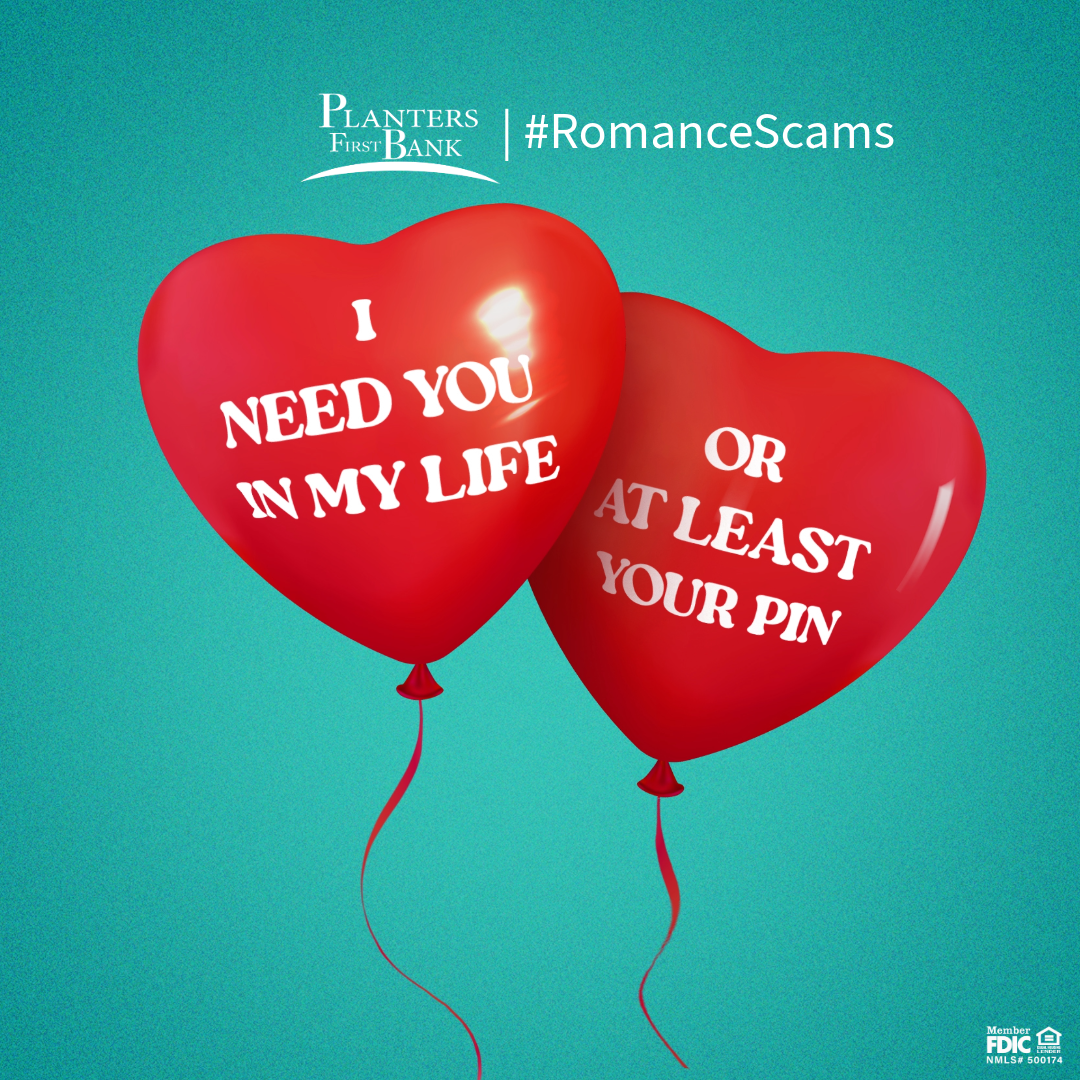Love is in the air and online, but so are cybercriminals!
According to a recent Pew survey, almost a third of Americans said they used an online dating service or app, and 10% of people in a relationship said that they met their partner online. These stats are even higher for younger people. Unfortunately, though, all this online romance creates opportunities for scammers. Ick!
WHAT IS A ROMANCE SCAM?
Romance scams are also called sweetheart scams, which refer to scams involving online dating. Essentially, a bad actor creates a fake online profile, fires up the charm, and attempts to stir up romantic feelings in potential victims. After some not-so-innocent flirtation, eventually, the scammer asks for money.
to scams involving online dating. Essentially, a bad actor creates a fake online profile, fires up the charm, and attempts to stir up romantic feelings in potential victims. After some not-so-innocent flirtation, eventually, the scammer asks for money.
PAY ATTENTION TO RED FLAGS
Romance scammers try to be as convincing as possible, which can now include using artificial intelligence-powered deepfake video or audio technology. Still, many cybercriminals follow a similar scammy pattern. Look out for some red flags when cybersurfing for love:
- The person requests money for urgent matters, such as medical expenses or a plane ticket to see you. Never send money to someone you haven’t met in person.
- The person requests hard-to-track forms of payment, like pre-loaded gift cards.
- The person claims to live far away from you, often in a foreign country. They might also say they are in the military and serving overseas.
- The person breaks promises to see you in person.
- The person wants to push the conversation from the dating app to other messaging platforms like WhatsApp, Signal, or Telegram.
- The relationship feels like it is moving very fast.
SAFEGUARD YOUR HEART (AND WALLET) FROM SCAMMERS
By adopting a few privacy habits, you can limit what scammers can learn about you:
- Share with care: Think before posting about yourself and others on social media or online dating services. Consider what a post reveals and who can see it.
- Check your settings: Consider making your social media profiles “private. " This will make it harder for scammers to target you and communicate with you.
- Think before you click: Be wary of messages that push you for immediate action or ask for personal information. This is a red flag for phishing. Never share personal info via email or text if you do not know the sender.
- Use reverse image search: Do a reverse image search of the flirty account’s profile picture. You may see that the image belongs to a completely different person or has been affiliated with different online identities. If this is the case, there is a high chance the person behind the fake profile picture is trying to scam you.
By speaking out, reporting scams, and encouraging others to do the same, you can help protect others from becoming victims.
For more information, visit staysafeonline.org/romance-scams.

Additional Resources:
National Cybersecurity Alliance: Online Romance and Dating Scams Handout
FBI: Romance Scams
FTC: What You Need to Know About Romance Scams
Norton LifeLock: Romance Scams Guide
Contact Planters First Bank:
If you believe that your account(s) have been compromised, please call 833-732-8351 immediately or Click here to contact us through our website.
BBB Scam Tracker℠
Spot a business or offer that sounds like an illegal scheme or fraud? Tell us about it.
Help us investigate and warn others by reporting what you know.
